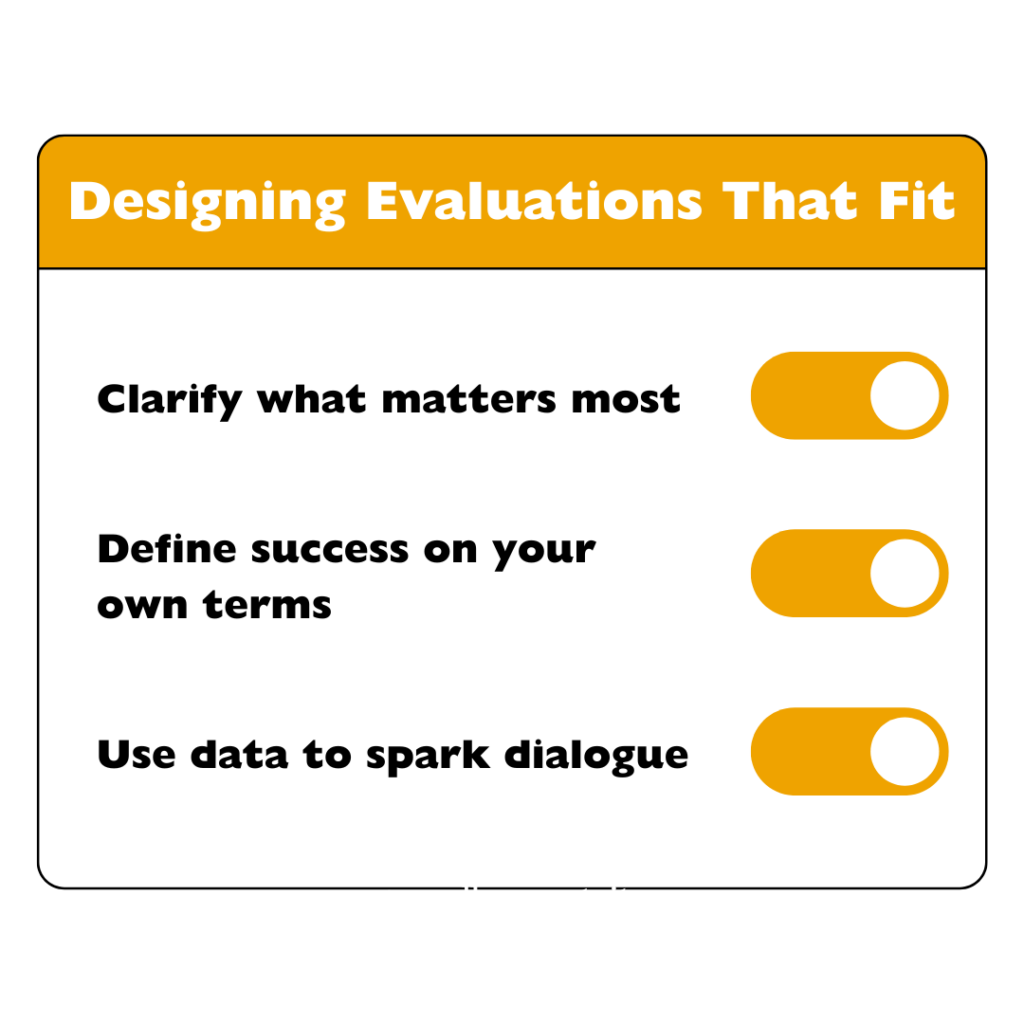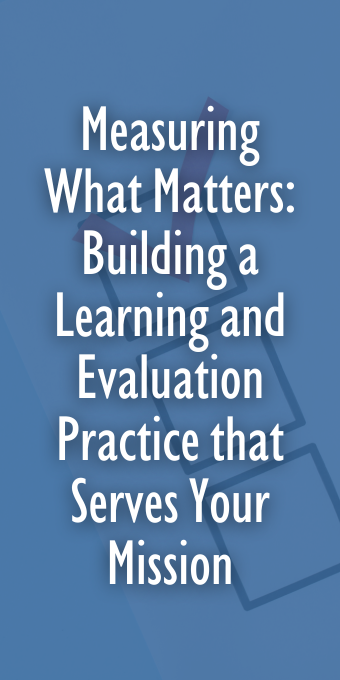Measuring What Matters: Building a Learning and Evaluation Practice that Serves Your Mission
At La Piana Consulting, we believe evaluation should be a tool for learning. Too often, nonprofits are overwhelmed by the pressure to measure “impact” in rigid or funder-driven ways that don’t reflect organizational values or participant goals. That’s why we’re helping organizations reframe evaluation to center learning, equity, and mission alignment. There’s nothing worse than going through the motions of collecting data for the sake of collecting data. Nonprofit data should be used to help both participants and staff refine, modify and grow the things that are working best for those that they serve.
Shifting from Proving to Improving
Traditional evaluation models often emphasize proving results, usually to funders, through complex metrics or “objective” outcomes that may not reflect community voice. Programmatic outcomes, which are intended to help guide nonprofits to achieve intended impact, can turn into an extractive process that doesn’t actually create an environment for reflection or refinement, and fail to center on equity. And let’s be real — data collection and analysis take time, and many nonprofits do not have a dedicated staff or team to owning this work, so it ends up being added to full plates.
But meaningful evaluation isn’t about checking boxes or justifying funding. It’s about asking: What are we learning? What are we doing that’s really making a true difference? What’s changing? What do we need to do differently? Does our definition of success and our community members definition of success match?
By shifting the mindset from “proving” to “improving,” nonprofits can embrace evaluation as a practice that supports strategic decision-making, fosters a culture of reflection, and leads to stronger results over time.
Designing Evaluations That Fit

Every nonprofit is different, so evaluation tools and frameworks should fit your organization’s specific goals, culture, and stage of development. We encourage organizations to:
- Clarify what matters most: Start with your mission, values, and intended impact. What are you trying to achieve, and why?
- Define success on your own terms: Identify the changes you hope to see, for whom, and how you’ll know they’re happening.
- Use data to spark dialogue: Create feedback loops with staff, community members, and partners to interpret what you’re learning—and adjust accordingly.
Our approach helps organizations use both quantitative and qualitative data to generate insight, not just information. Whether it’s through surveys, interviews, or story-based methods, the goal is to gather meaningful, actionable learning.
Making Learning Sustainable
We recognize that nonprofits have limited time and resources. A sustainable learning practice doesn’t require perfect data or complex dashboards — it requires the discipline to pause, reflect, and make meaning together.
We recommend embedding learning into existing rhythms — such as team meetings, board updates, or strategic planning retreats. Establishing simple habits like “pause and reflect” moments or quarterly learning huddles can cultivate a culture of curiosity and continuous improvement. A number of nonprofits find success adding a data reflection prompt to all standing meeting agendas to foster a culture of learning.
Evaluation as a Path to Equity
Ultimately, learning and evaluation can be powerful tools for equity when they amplify community voice, interrogate power dynamics, and surface unintended impacts. We challenge organizations to ask:
- Who decides what success looks like?
- Who is included in designing and interpreting evaluation?
- How do we ensure our learning leads to action and accountability?
By centering equity in evaluation, nonprofits can strengthen their accountability to the communities they serve and build programs and strategies that truly reflect their values.


Comment section